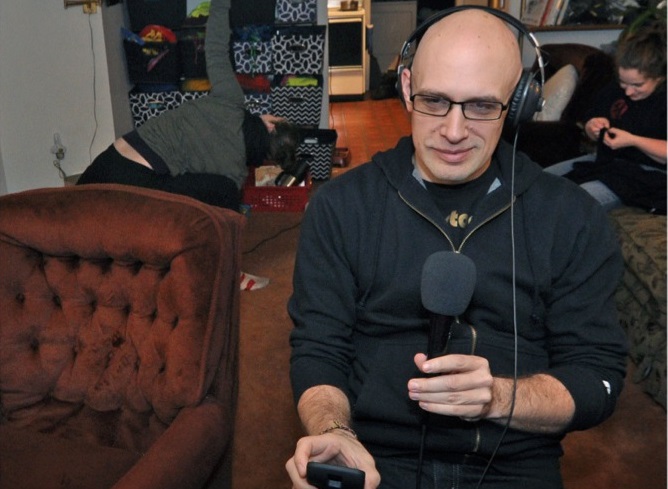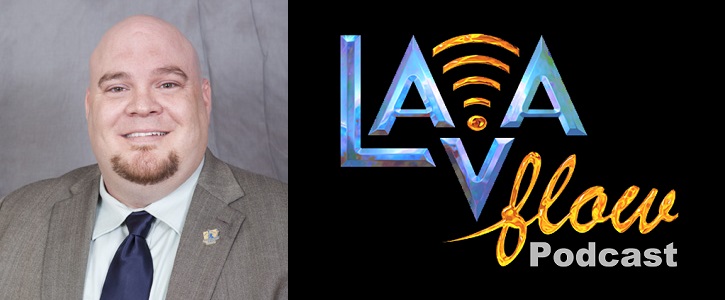Among methods for accepting donations, Bitcoin stands out with its ease of use, low cost, and simple setup process. This is especially useful for podcasts and other decentralized media forms, many of whom offer their service for free in hopes of receiving voluntary donations, making their operating margins potentially slim.
Cointelegraph spoke with several independent media outlets, from podcasts to radio to video shows, about the unique considerations provided by deriving funding from Bitcoin.
A significant source of income
Mark Edge, host of radio show Free Talk Live, indicates that Bitcoin income is around “20% now, sometimes lower. 50%+ at times in the past,” while Rodger Paxton of the LAVA Flow Podcast claims: “I receive about half of my income from my podcast by bitcoin.” Brian Sovryn, host of technology and futurism podcast Sovryn Tech, also receives a similar ratio.
“I do a podcast called Sovryn Tech that has been covering Bitcoin since its inception, and so I pretty quickly set up a Bitcoin donation address and that has worked out well for me over the years. Sometimes it's from quite a few listeners in small amounts, and other times someone will donate once a year or a every few months with a significant amount.”
Sovryn is also an indie game developer, and the ratio of Bitcoin received in that pursuit is significantly higher.
“While my donations for my podcasts and blog posts are often varied between Bitcoin donation or PayPal donation, it's very different in that 87% of my PC game sales are with Bitcoin.”

Convenient, low cost donations
Paxton prefers donations in Bitcoin because of the ease of setup and relative absence of fees.
“I love that there are no fees. Both Patreon and PayPal have very large fees that eat into my profit, so I encourage everyone I can to use Bitcoin to send me their donations.”
Edge maintains some concerns over slower transactions and higher fees recently over Bitcoin’s block size limit, saying “I would really like to see the Devs come to some agreement.” Sovryn appreciated the relative ease of setup compared to other donation systems.
“It was really easy to setup, and without having to go through PayPal's hassle of verifying identity and all of that, which really is a pain. And I ended up being able to either put a QR code at the end of a blog post, or just put the actual address in the show notes for a podcast episode. It was way easier to implement the means to get a donation in Bitcoin than any other system, so that was definitely another impetus to start using it.”
Ideologically free-market
For cryptocurrency and peer-to-peer network evangelist (and former Cointelegraph contributor) Amanda B. Johnson, co-founder of cryptocurrency video report The Daily Decrypt, the lure of a fully independent currency got her interested in using Bitcoin.
“After thinking about it for a good 6 months or so, and after seeing that independent bloggers online had these weird little QR codes on their websites and they were actually making money that way, I began to see Bitcoin as the potential fulfillment of the dreams of every free market economist for the last 200 years: the first workable competing independent money. Once that dawned on me, I became interested in getting paid in Bitcoin to write about Bitcoin. So I first reached out to Bitcoin magazine, and that led to various writing stints, from Bitcoin magazine to Cointelegraph to Bitcoin.com, to CopBlock.org.”
Paxton concurs, saying “I love the fact that the money is non-fiat and uncontrolled by any government.”

Bitcoin facilitates a decentralized, independent media
Sovryn feels that a decentralized currency like Bitcoin is imperative to an independent media that can speak or report without fear of financial repercussions from angering government.
“As long as you're doing things right, you're Bitcoin wallet can't get "shut down". You think about how WikiLeaks was effectively banned from donations by MasterCard, and the like. We simply wouldn't have WikiLeaks without Bitcoin, in my opinion. And without WikiLeaks, there would be so few truths even available in the media, independent or otherwise. It's essential that people that do actual journalism and reporting, etc., to be able to get paid. But it's pretty clear that if governments and many corporations had their way, independent media that speaks truth to power would starve.”
Paxton agrees that the lack of government paperwork and risks involved in traditional currency can do wonders for independent media.
“Not having to worry about things such as tax returns, banks, audits, etc. allows smaller, independent media to flourish.”
